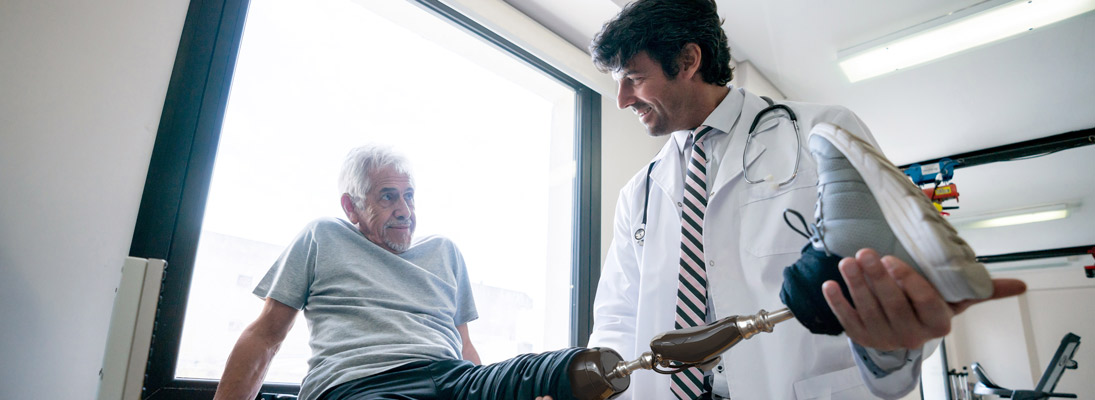
Many people with amputated limbs have chronic pain in their residual limbs that can affect their quality of life. They're not able to wear their prosthetics for long periods of time (if at all), or they take a variety of different medications that may or may not seem to help, or their pain causes mental health issues like depression. Some people can also feel as if their amputated extremity is still there.
If you have some of these issues, you may be a candidate for a surgical treatment called targeted muscle reinnervation (TMR) for residual limb pain and/or phantom limb pain. This is a type of peripheral nerve surgery that’s been shown to reduce and/or eliminate nerve pain.
What's residual limb pain?
Residual limb pain, often referred to as “stump pain” by patients, is a type of pain felt in the part of a limb that remains after an amputation. The most common example is in the stump of below-knee amputees. This type of pain occurs for many patients. It may feel:
- Pressing
- Throbbing/aching
- Burning
- Squeezing
- Stabbing
Residual limb pain can be caused by various reasons, such as problems in the bone or soft tissue, poor blood supply to the limb, a tumor or problems with poor fitting or use of a prosthesis. Often, residual limb pain is caused by a neuroma, or pinched nerve, in the residual limb that’s causing symptoms.
What's phantom limb pain?
Often occurring together with residual limb pain, phantom limb pain is pain that feels like it's coming from a body part that's no longer there. The pain can also be shooting, stabbing, cramping, pins and needles, crushing, throbbing or burning. For some it’s a daily nuisance, but for many, it can negatively affect their quality of life, prevent the wearing of their prosthesis or cause permanent disability.
If you've tried multiple medications, seen many pain specialists and had other interventions that haven't helped, we may be able to help. Speak with our surgeons to find out if you are a candidate for peripheral nerve surgery (TMR).
Call (559) 459-4027 today to schedule a consultation.
We use cookies and other tools to optimize and enhance your experience on our website. View our Privacy Policy.

